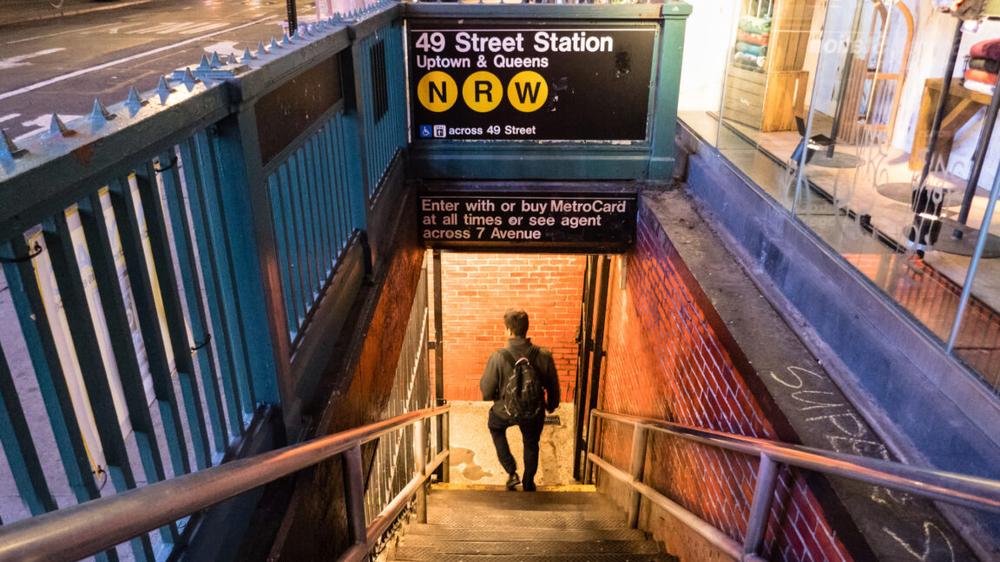"AI doesn't care," a vandal scrawled on a New York subway ad promoting a wearable AI pendant called Friend, which was designed to monitor a user's everyday conversations and serve as a companion "who listens, responds, and supports you."
"Human connection is sacred," the vandal wrote, emphasizing, "AI is not your friend."
This act of vandalism is now part of a huge online archive collecting defaced ads that the Friend campaign inspired, as many New Yorkers responded with vitriol to marketing claims that the AI "friend" would never "bail on dinner" or abandon you to ride the subway alone.
"Friends don't let friends sell their souls," another vandal wrote.
Others criticizing the AI pendant—which sells for $129 and will be available in Walmart stores soon—used the ads to lob larger political complaints about AI. For example, on an ad suggesting an AI friend would "never leave dirty dishes in the sink," a vandal called out AI data centers like xAI's for "poisoning black communities." Another wrote that "freely giving your personal info to Big Tech won't heal your wounds," urging subway riders to join the backlash against Palantir, which The Guardian reported uses AI to surveil individuals and identify military targets.
A review of the archive shows that much of the criticism focused on the potential for the pendant to spy on users. "AI surveillance slop," one vandal summed it up, while another defaced an ad promising "I'll binge the entire series with you" to say "I'll steal your info, steal your data, steal your identity."
According to The New York Times, over the past six weeks, the Friend ads have become "one of the most talked about subway marketing campaigns in recent memory," after 22-year-old Friend founder Avi Schiffmann paid less than $1 million to flood MTA subway cars with ads across New York. Since its rollout in New York, the campaign has spread to Los Angeles, and Chicago will be next, but MTA subway cars were targeted first to drive as much hype as possible, Schiffman confirmed.
"Only the MTA allows you to buy a full takeover like that," Schiffman told the NYT. "It almost feels illegal."
In addition to backlash over feared surveillance capitalism, critics have accused Schiffman of taking advantage of the loneliness epidemic. Conducting a survey last year, researchers with Harvard Graduate School of Education’s Making Caring Common found that people between "30-44 years of age were the loneliest group." Overall, 73 percent of those surveyed "selected technology as contributing to loneliness in the country."
But Schiffman rejects these criticisms, telling the NYT that his AI Friend pendant is intended to supplement human friends, not replace them, supposedly helping to raise the "average emotional intelligence" of users "significantly."
"I don’t view this as dystopian," Schiffman said, suggesting that "the AI friend is a new category of companionship, one that will coexist alongside traditional friends rather than replace them," the NYT reported. "We have a cat and a dog and a child and an adult in the same room," the Friend founder said. "Why not an AI?"
The MTA has not commented on the controversy, but Victoria Mottesheard—a vice president at Outfront Media, which manages MTA advertising—told the NYT that the Friend campaign blew up because AI "is the conversation of 2025."
Website lets anyone deface Friend ads
So far, the Friend ads have not yielded significant sales, Schiffman confirmed, telling the NYT that only 3,100 have sold. He expects that society isn't ready for AI companions to be promoted at such a large scale and that his ad campaign will help normalize AI friends.
In the meantime, critics have rushed to attack Friend on social media, inspiring a website where anyone can vandalize a Friend ad and share it online. That website has received close to 6,000 submissions so far, its creator, Marc Mueller, told the NYT, and visitors can take a tour of these submissions by choosing to "ride train to see more" after creating their own vandalized version.
For visitors to Mueller's site, riding the train displays a carousel documenting backlash to Friend, as well as "performance art" by visitors poking fun at the ads in less serious ways. One example showed a vandalized ad changing "Friend" to "Fries," with a crude illustration of McDonald's French fries, while another transformed the ad into a campaign for "fried chicken."
Others were seemingly more serious about turning the ad into a warning. One vandal drew a bunch of arrows pointing to the "end" in Friend while turning the pendant into a cry-face emoji, seemingly drawing attention to research on the mental health risks of relying on AI companions—including the alleged suicide risks of products like Character.AI and ChatGPT, which have spawned lawsuits and prompted a Senate hearing.

 California law turns down loud streaming ads thanks to one baby’s nap
California law turns down loud streaming ads thanks to one baby’s nap